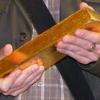Question: What does Hong Hua do ?
I spent an hour or two doing a survey of the studies
on PubMed. Here is a summary of what i found:
1. Hang Hua has blood thinning (anti-coagulant) properties.
(danshen also has blood thinning properties)
2. Hong Hua has been used for centuries for the specific
treatment of urinary problems...
(note: urinary problems are usually infections so perhaps
Hong Hua treats issues chlamydia)
3. Hong Hua 'dissolves' kidney stones:
Hong Hua dissolves kidney stones in mice.
http://www.ncbi.nlm....pubmed/22398437
4. Hong Hua inhibits both α-Glucosidase and α-Amylase
In other words, hong hua will stop your body making
simple sugars from complex carbohydrates.
It will thus stop your blood sugar from rising.
http://www.ncbi.nlm....pubmed/25873983
Different Proportions of Huangqi (Radix Astragali Mongolici)
and Honghua (Flos Carthami) Injection on α-Glucosidase
and α-Amylase Activities.
what's α-Glucosidase ?
It breaks down carbohydrates into simple sugars
From Wikipedia:
Alpha-glucosidase inhibitors are oral anti-diabetic drugs used
for diabetes mellitus type 2 that work by preventing the digestion
of carbohydrates (such as starch and table sugar).
Carbohydrates are normally converted into simple sugars (monosaccharides),
which can be absorbed through the intestine.
Hence, alpha-glucosidase inhibitors reduce the impact of carbohydrates on blood sugar.
what is alpha-Amylase ?
α-Amylase is a protein enzyme EC 3.2.1.1 that hydrolyses alpha bonds of
large, alpha-linked polysaccharides, such as starch and glycogen,
yielding glucose and maltose.[2]
It is the major form of amylase found in humans and other mammals.[3]
5. Hong Hua has angiogenic effects (i.e. pro-healing)
(It helps your body form new blood vessels)
http://www.ncbi.nlm....pubmed/25172787
Pro-angiogenic effects of Carthami Flos whole extract in human
microvascular endothelial cells in vitro and in zebrafish in vivo.
Angiogenesis is the physiological process through which new blood vessels
form from pre-existing vessels.[1] This is distinct from vasculogenesis,
which is the de novo formation of endothelial cells from mesoderm cell
precursors.[2] The first vessels in the developing embryo form through
vasculogenesis, after which angiogenesis is responsible for most, if not all,
blood vessel growth during development and in disease.[3]
6. Hong Hua may cause birth defects.
http://www.ncbi.nlm....pubmed/11090999
A study on the teratogenic and cytotoxic effects of safflower extract.
The results showed that in higher doses (1.6 and 2 mg/kg/day) the embryos
were absorbed, whereas with lower dose (1.2 mg/kg/day) changes in external,
internal and longitudinal diameters, open neuropore, changes in cellular
orientation and cellular degeneration were observed. The results obtained
from cytotoxic assay also demonstrated a concentration-dependent cytotoxic
effect of carthami flos extract. It is concluded that the use of carthami
flos as a food additive should be reconsidered.
Conclusion: It may cause birth defects...
Women trying to conceive should not use Hong Hua.
In summary:
Hong Hua:
1. thins the blood
2. treats urinary problems/infections
3. dissolves kidney stones
4. inhibits both α-Glucosidase and α-Amylase
5. has angiogenic effects (i.e. pro-healing)
6. may cause birth defects (dont take it if you're pregnant)
Playground.

























































